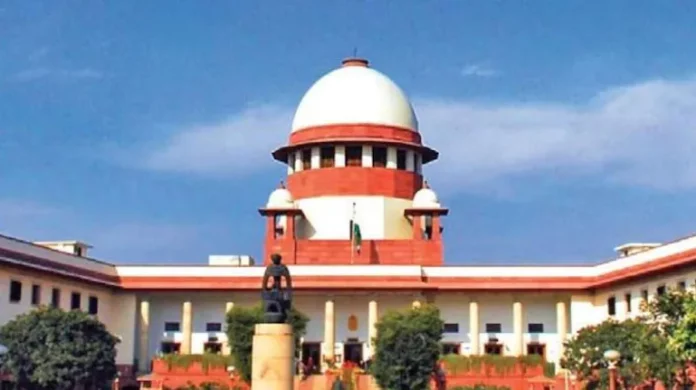Act Or Face Contempt: The Supreme Court on Friday made some of its strongest comments yet on India’s human rights record and growing hate speeches two days after UN Secretary-General Antonio Guterres criticized the country.
“This is the 21st century. Where have we reached in the name of religion?” the court said, hearing a petition on hate speeches and directing authorities to act against such instances by themselves or face contempt charges. “Contempt will be initiated if the authorities fail to act,” the court said.
As a religion-neutral country, India’s state of affairs was “shocking”.
According to the Supreme Court, the center and the states were asked to respond to a plea requesting an urgent intervention to stop “the growing menace of targeting and terrorizing the Muslim community in India”.
Shaheen Abdullah had petitioned the top court to order the center and states to initiate credible investigations into hate crimes and hate speeches across the country.
For the petitioner, senior advocate Kapil Sibal cited a recent “Hindu Sabha” in which BJP MP from West Delhi, Parvesh Verma, called for the “total boycott” of “these people”.
Additionally, the judges read comments from Jagat Guru Yogeshwar Acharya, who urged attendees to “slit the throats” of anyone who “raises a finger at our temples”.
Asked by Mr Sibal about their stern directive to the police and governments to file cases on their own, the judges replied, “It’s our duty… if we don’t do it, it’s abdication.”
Mr Abdullah has also asked the court to invoke the Unlawful Activities Prevention Act (UAPA) and other stringent provisions to curb hate crimes.
By delivering hate speeches, members of the ruling political party are “targeting and terrorizing” the Muslim community.
In a rare rebuke, UN Secretary-General Antonio Guterres red-flagged growing hate speech in the country two days earlier.
According to Mr Guterres, in his speech in Mumbai, India has an important role to play in shaping global human rights and protecting and promoting the rights of all individuals, including minorities.
Despite praising India’s achievements 75 years after leaving British rule, Mr Guterres warned that diversity is not a guarantee.
Using Mahatma Gandhi and Jawaharlal Nehru as examples, Mr Guterres said hate speech must be condemned unequivocally.
“India needs to protect the rights and freedoms of journalists, human rights activists, students, and academics to achieve this.” The judiciary must remain independent, he said, adding that “more needs to be done to advance women’s rights and gender equality”.













